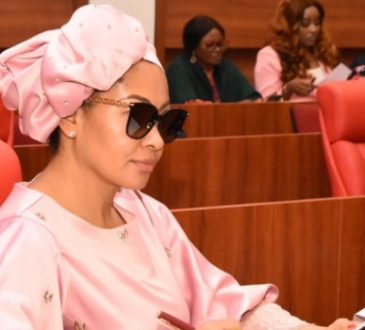
Having seen two consecutive quarters of slow growth in Nigeria, which has pushed the country’s economic into recession, some financial analysts in the country have warned the Federal Government that Nigeria may continue to wallow in economic recession until 2020 except the government return all the money from the Treasury Single Account (TSA) to the banks at single digit rates and that banks’ lending rate should not exceed 5 per cent interest rate.
Specifically, Dr Olisa Agbakoba, a Senior Advocate of Nigeria (SAN), recommended, as a matter of urgency, that strong fiscal, trade and monetary policy measures should be adopted to save Nigerian economy from depression. According to him, the economy is indeed in a gloomy state of affairs which if not treated immediately, may worsen to depression.
In economics, a depression is commonly defined as an extreme recession that lasts two or more years. It is a more severe slowdown in economic activity over the course of a normal business cycle.
Agbakoba had a few days ago predicted that Nigeria will continue to wallow in economic recession until 2020 except the Federal Government takes hold of the banking sector and exert more regulatory control, among other measures.
In a letter he wrote on Thursday to President Muhammadu Buhari, titled: “Practical Solutions to Scale Nigeria’s Recession,” and made available to Business247 News Online, the legal luminary stated that in any ailing economy ,the first step that must be taken is a diagnosis of the problem and in Nigeria’s case,” I would diagnose that it is suffering from malignant metabolic economic syndrome, complicated by inflation, high interest rates, unemployment, weak infrastructure and the results of the global fall in the price of oil.
“It is indeed a gloomy state of affairs which if not treated with urgency by introducing strong fiscal, trade and monetary policy could well lead to depression.”
Agbakoba who said he feels called upon to make his contribution to the dialogue on a solution to the economic recession that Nigeria is undergoing, blamed oil price shock as the main contributing factor causing the downward spiral in the economy resulting in the present recession.
He acknowledged the fact that Nigeria has experienced mismanagement for several decades, stressing that this is not the time to lament but a time to chart a clear economic policy direction that will give value to the economy.
“This will entail developing macroeconomic models tailored to stimulate all sectors of the economy and catapulting us out of recession,” he further stated.
On the issue of monetary policy, Agbakoba said there was a lot of confusion. To him, there is the need for harmonization between the Central Bank of Nigeria (CBN) policy which is leaning towards tight liquidity in a bid to harness inflation and the Minister of Finance’s call for increased public spending on capital projects.
He noted that CBN increased the Monetary Policy Rate (MPR) by 200 basis points from 12 per cent to 14 per cent to combat inflation and stimulate growth. The MPR is the anchor rate at which the CBN, in performing its role as lender of last resort, lends to Deposit Money Banks (DMBs) to boost the level of liquidity in the banking system. If the apex bank intends to increase the level of liquidity in the economy, it reduces the MPR but increases it when it intends to tighten money supply.
“By increasing MPR, CBN has unfortunately tightened lending the Lawyer regretted. He said the banking sector requires strengthening and must be empowered to lend”, he said.
The letter, which was copied to the Senate President and Speaker of the House of Representatives read in part: “ I recommend that money from the Treasury Single Account should go back to the banks at single digit rates and that banks’ recommended lending rate should not exceed 5 per cent.”
“This will provide a New Economic Model that when implemented and pursued vigorously can pull us from this recession by second quarter of 2017. However, if nothing is done the recession cycle may well extend up to Q4 2020,” he reiterated.







Comments are closed.